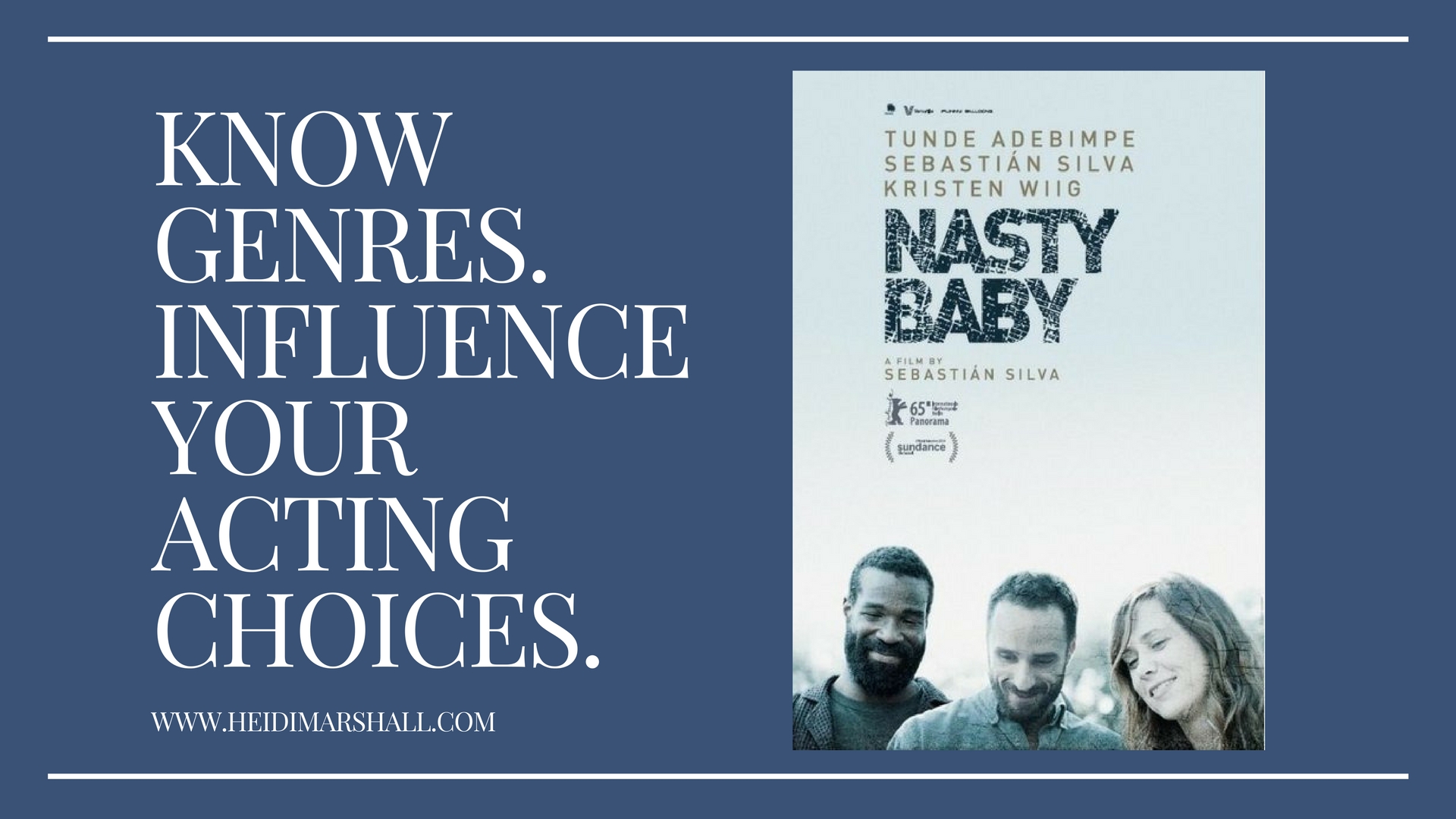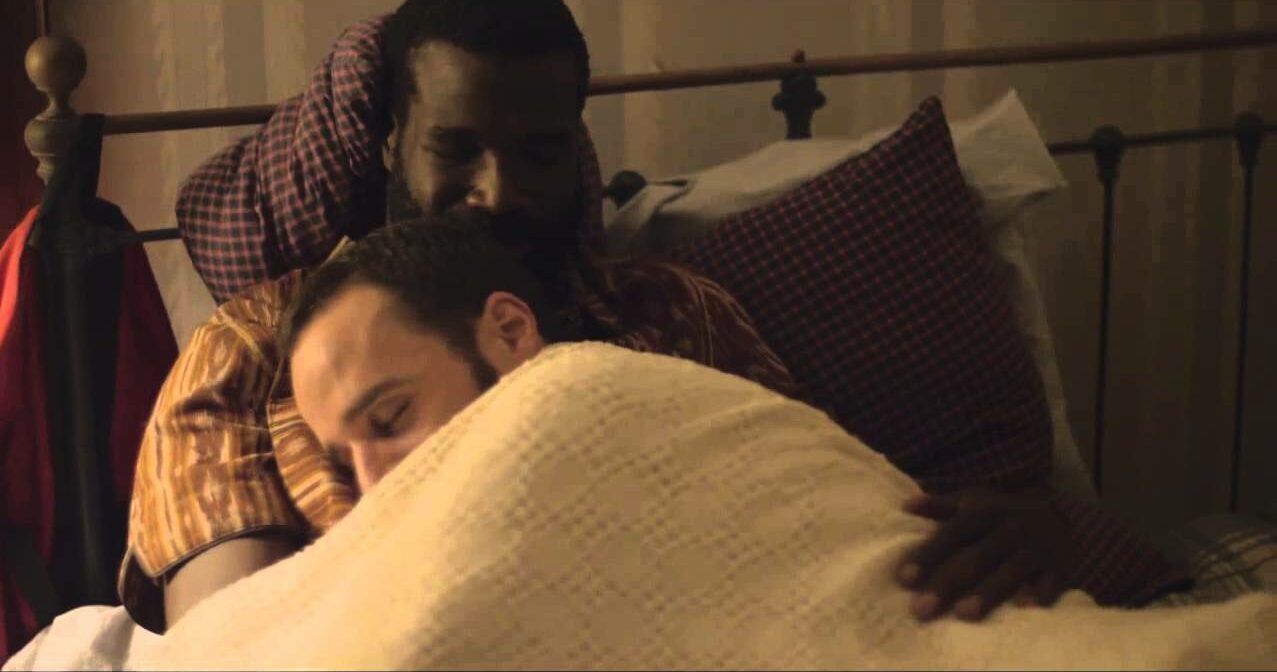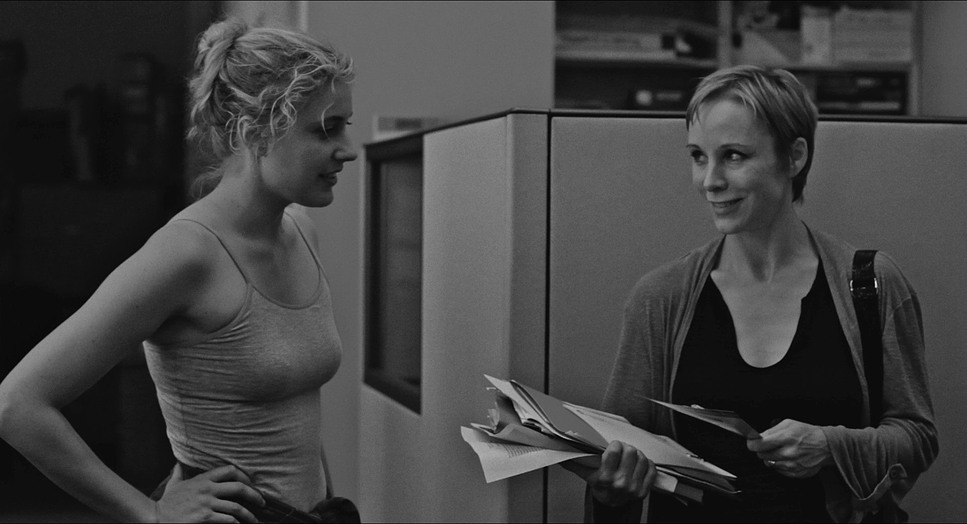Subscribe – Button
Get Tips
Get free tips while you’re waiting to jump into a class! Sign up for my newsletter.

Do you know how to approach, say, mumblecore acting? I ask because I am finally starting to understand this genre that I resisted for such a long time.
There are usually some subgenres—smaller subgroups within drama or comedy, for example—that we are less familiar with, or that we don’t love to watch. Mumblecore was a subgenre that eluded my interest for a long time. I’ll tell you what happened.
Wikipedia says that mumblecore is a subgenre of independent film characterized by naturalistic acting and (sometimes improvised) dialogue, low budgets, an emphasis on dialogue over plot, and a focus on the personal relationships of young adults.
I wasn’t originally a fan of this style of filmmaking because I felt like it was often too blasé, too casual, too non-eventful, and therefore too self-indulgent. I was totally not interested in characters “mumbling” about their lives.
Being a fan of absolute naturalism on film, it’s funny that I really resisted this style of filmmaking.
My friend suggested that I watch Nasty Baby for stylistic research on another project I’m developing. I watched the Sebastian Silva film—which, btw, I learned is actually “mumblegore“: mixing mumblecore and horror. Aye!
Every creator knows to do tons of reference research. This feeds your ideas, stimulates your creativity and savviness.
I had no idea that this film was mumblecore until I started watching it. And I almost gave up about 20 minutes into the film. But I thought “Heidi, study this! Stay with it.“
And before I knew it… the style and film totally grew on me. I couldn’t stop watching the film.
I fell in love with the characters, the performances, the simple almost-documentary style, the looseness of dialogue and camera. The film and genre seeped into my artistically-curious mind. And heart.
I loved this film.
I loved the intimacy of the story.
I loved the acting style. (How can you not fall in love with the honest sweetness of actors Sebastian Silva and Tunde Adebimpe?)

Now. You don’t have to like mumblecore. You don’t have to even be interested in acting in a mumblecore genre film. But, as an actor, you do want to be educated on genres for your auditions and hires.
Knowing genres and subgenres will influence your audition choices.
In pilot season and for most films, you are investigators about the genre of the project.
It’s up to you to imagine the style of how the project will be filmed so that you can let it influence your acting choices. You act differently in a thriller than a comedy, right? Well, go further! The finer nuance is understanding the subgenres:
The Office vs. Big Bang Theory vs. Juno vs. Dumb and Dumber.
All are comedies…but they’re very different from each other.
Then you can put it all into action as you deftly swing through all the varieties of genres in your auditions!
Yesterday, I was coaching/filming for an audition for Red Oaks (TV, comedy, 1980s style, David Gordon Green creator) and thank goodness both of us had watched an episode or two. We understood exactly how much parameter the actor had for the comedy. (This director loves improv on set! So we tagged that onto the end of the take.)
Today, I coach a prep session for an SNL audition. Thank goodness I grew up on Saturday Night Live and have the tone in my bones.
Tomorrow, I coach on a pilot show – there’s no track record for reference. We only have the limited scenes for a tonal reference. We have to make our best guesses from the clues we have.

Our genre detective skillz have to be goooooood.
Actors need to be familiar with the many genres/subgenres, know the artists creating the work, and generally be informed as much as possible so that you are acting within the “correct” world of the project.
So, what is your assignment, your mission, should you choose to accept it?
Special warning: Beware of getting hooked on a genre you previously didn’t like!
This “expansion of artistic taste and genre awareness” also happened to me on The Walking Dead. I am not a zombie film fan, but, oh my, that was one of the best pilots I’ve ever seen and I was hooked til 3am one fateful night of doing research for classes. And, now many seasons later, I totally understand “high stakes” acting in a post-apocalyptic setting. TIP: for that genre you really have to tap into the desperate need to survive. Bring on your post-apocalyptic scenes!
So.
Watch movies and TV.
It’s your job.
Tell me – what are your favorite subgenres? Anything I need to discover? Tell me in the comments!
To learn more about refining your acting choices according to subgenre, join me in my class: GENRE, TONE & STYLE: DELIVERING NUANCED AUDITIONS.
Dericka Coady says
Hi Heidi, I hope you and Johnny are having a really good summer.I often think of you.
This is a wonderful site.I am going to attempt to follow your directions on self taping.It may take awhile
but it seems we have plenty of time these days.Thank you for sharing your great experience and knowledge. Much love
Dericka